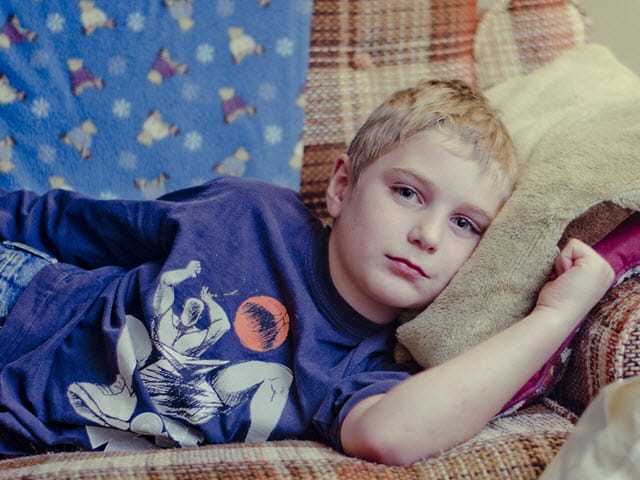Round two of the flu: Gastroenteritis
May 04, 2018
Home > About > News & Media > Story Center
The dreaded cold and flu season is finally coming to an end and if your family is anything like mine, you have high hopes for an illness-free household. But, as Spring brings flowers and sunshine, it also brings what is often coined as ‘round two of the flu.’
Although it’s often referred to as the stomach flu, Viral Gastroenteritis is not the same as influenza and often happens after the cold and flu season is over. This viral infection, that affects the stomach and intestines, can be a doozy, making your child a pro at vomiting in a variety of locales. Luckily, it is short-lived, usually lasting a few days to a week.
The biggest danger with gastroenteritis is dehydration. With all the vomiting and diarrhea, your child is losing more fluid, than they are taking in. Make sure small amounts of clear fluids are introduced, starting with a teaspoon every 5 minutes and slowly increasing the amount of liquid and frequency. Water is great, but may not be enough to replace the electrolytes that your child lost. Although some sports drinks have a lot of sugar, they are generally okay to give to school-aged children and teenagers. Steer clear of milk, caffeine and any citrus drinks, like orange juice, as these can cause additional stomach discomfort.
“The stomach flu can do a number on your child’s body,” said Opher Nadler, M.D. “Once the vomiting has stopped, introduce clear liquids, slowly. Wait to resume a balanced diet until your child can tolerate liquids and keep it simple and bland. Foods like rice, oatmeal, crackers, bananas, and Jell-O are good to start with.” Once your child can keep these down, you can begin to try other foods. But for the sake of your little one, give them some time before introducing spicy, fatty or acidic foods back into their diet.
Gastroenteritis generally goes away on its own, without the need for any medication. However, if your child continues to vomit or have diarrhea for more than a few days, or you notice signs of dehydration such as no urination for 12 hours, lack of energy, visibly appearing ill, or blood in vomit or stool, contact your pediatrician immediately.
Keep in mind, this virus is highly contagious. So, what can you do? Make sure you and your child washes their hands after vomiting, using the bathroom and before eating. If you or your child are feeling ill, stay home. Anything you can do to prevent the spread of this virus is key to staying healthy.
Click here for tips on hand-washing.


